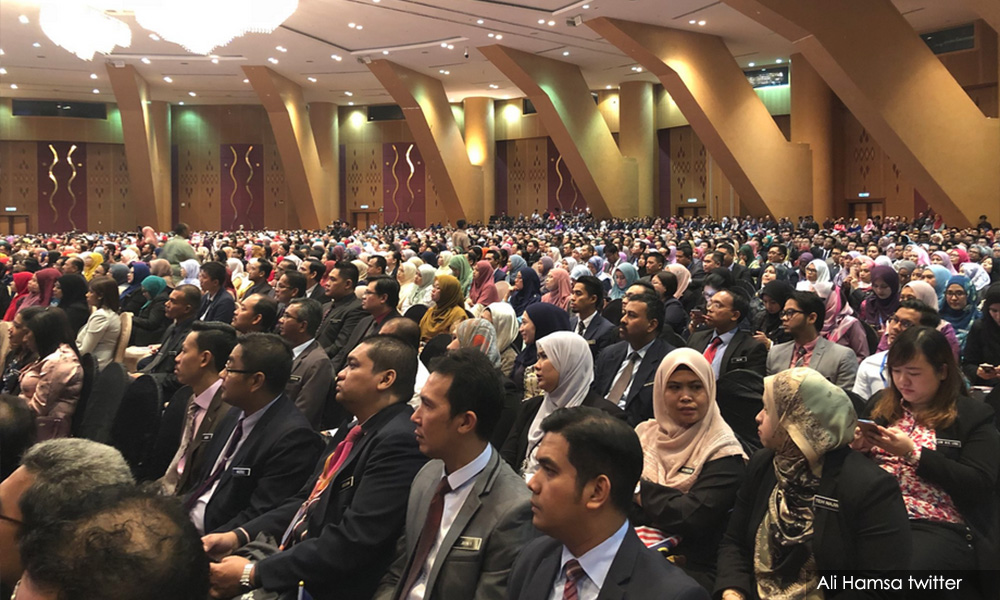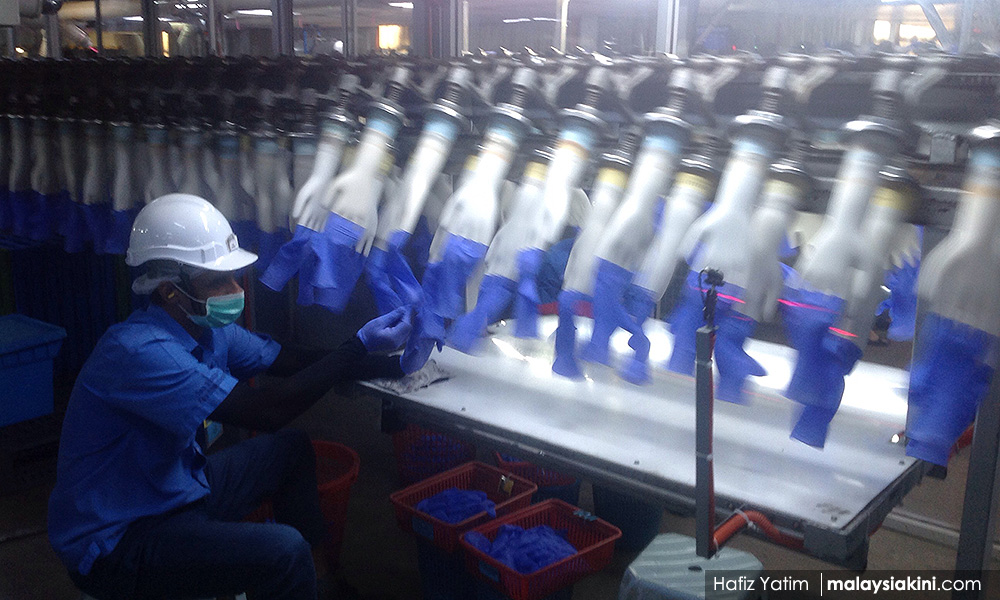
An economist has disputed the notion that it is not the high cost of living but low wages that is the cause of the economic woes of workers.
Malaysian Institute of Economic Research senior fellow Shankaran Nambiar (photo, above)said employers cannot arbitrarily increase wages as there must be some basis to do so.
He pointed out that standard economic theory argues that wages go up as extra output is produced – and this extra output is the result of the additional labour being applied.
Shankaran said another school of thought argues that the wages paid should compensate for productivity, creativity and also to restrain worker turnover.
"Neither line of reasoning allows you to increase wages ‘out of tandem’ with productivity," Shankaran told Malaysiakini.
"No employer will increase wages simply because it helps one political party or the other to be in power," added the former don who hails from Penang.
"Surely, Malaysians would not grudge engaging in work that is dirty, dangerous and difficult," said the author of Malaysia in Troubled Times.
" But if employers in Malaysia cannot or will not pay them RM4,000 per month for these jobs, then they’ll have to find the payment that matches their opportunity cost elsewhere, be in Australia or Singapore," Shankaran stressed.

Shankaran was responding to Deputy Defence Minister Liew Chin Tong's New Straits Times article on March 3 headlined 'It's not high cost of living, but low pay'.
In the article, Liew said "jobs are central to one’s identity and Malaysia needs a new framing, understanding and more empathy".
"Clichés about jobs, wages and the economy need some refinement, or perhaps a serious change of approach."
He cited several cliches such as those who work overseas are top professionals who will be enticed to return through the "brain gain” programme via Talent Corp, wages can only rise when productivity increases in tandem, and Malaysians do not like to take up 3D — dirty, dangerous, difficult — jobs.
Shankaran said he finds it difficult to accept a high wage policy as a solution to the influx of migrant labour.
"Yes, we could pay unskilled workers RM4,000 per month, but that would result in tremendous price increases and huge hikes in the cost of doing business across the country," he said.
"I don’t know if that is what the companies would want. And if the cost of an unskilled worker is RM4,000 a month, I dread to think what the salary of a junior executive would be."
"How would the first step to wage increases be carried out? By increasing the minimum wage from RM1,100 to RM4,000?" Shankaran asked.
He said the impact of such a move on the cost of production and price increases would be "unmanageable".

But another possibility would be for the government to increase the salaries in the public sector, he added.
"I’m not sure if the Ministry of Finance would tolerate such a suggestion given the country’s present state of finances," he said.
"I don’t think anybody is under the mistaken belief that only'those who work overseas are top professionals'.
"But to attempt to attract unskilled Malaysian workers to return – if that’s the prescription - and to pay them wages that match those paid in Singapore or Australia would be economic suicide," Shankaran said.
He said the suggestion that high household debts can be stemmed by increasing wages is difficult to understand.
He said high household debts are not a good thing but it seems simplistic to suggest that paying more wages is the solution to such indebtedness.
"Is there any guarantee that increased wages will not encourage further debt-fuelled consumption?" Shankaran asked.
He also referred to various points where Liew hinted at automatisation and mechanisation.
But the mechanics is not clear, he said, and asked whether the idea to raise wages is to make it cheaper to employ capital (machines and technology).
"Or is it the other way round?" he asked.
Shankaran said the latter seems to be the favoured option as understood from the statement that “productivity can improve tremendously if a machine is introduced,” and that “progress should mean less unskilled labour is used in our economy".

He said if the desired objective is to raise wages through the use of capital (machines and technology), that should be stated clearly.
"But there’s no mention as to how any resulting loss in employment due to the increased use of capital would be treated," he pointed out.
" Unless it’s assumed that there would be no loss in employment.
"It is widely perceived that the cost of living is high but arbitrarily raising wages may not be the best way to go," he said.
"By the same token, ignoring the problem could have political consequences," he added.
"Yet, it would be brash to introduce economically unsustainable policies in order to retain political power." - Mkini


No comments:
Post a Comment
Note: Only a member of this blog may post a comment.